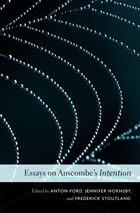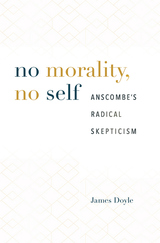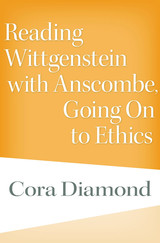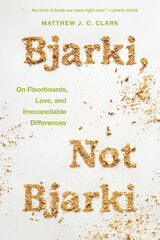
G. E. M. Anscombe's Intention, firmly established the philosophy of action as a distinctive field of inquiry. Donald Davidson called this 94-page book "the most important treatment of action since Aristotle." But until quite recently, few scholars recognized the magnitude of Anscombe's philosophical achievement. This collection of ten essays elucidates some of the more challenging aspects of Anscombe's work and affirms her reputation as one of our most original philosophers.
Born in 1919, Anscombe studied at St. Hugh's College, Oxford, where she later held a research fellowship. In 1941 she married philosopher Peter Geach, with whom she had seven children. A close friend of Wittgenstein, in 1946 she joined Oxford's Somerville College and spent the next twenty-four years there before being appointed to the Chair of Philosophy at Cambridge that Wittgenstein had held. She died in 2001 after her long career as a highly regarded analytic philosopher.
This volume brings together fresh interpretations of Intention written by some of today's leading philosophers of action. It will enlighten Anscombe's readers who struggle with concepts they find puzzling or obscure, while providing a bracing corrective to doubts about Intention's significance and the gravity of what is at stake.

Frequently cited and just as often disputed, Elizabeth Anscombe’s “Modern Moral Philosophy” (1958) and “The First Person” (1975) are touchstones of twentieth-century analytic philosophy. Though the arguments Anscombe advances in these papers are familiar to philosophers, their significance remains widely misunderstood, says James Doyle.
No Morality, No Self offers a fresh interpretation of Anscombe’s still-controversial theses about ethical reasoning and individual identity, specifically, her argument that the term “moral” (as it occurs in such contexts as “moral obligation”) is literally meaningless, and that “I” does not refer to some special entity called a “self”—a pair of claims that philosophers have responded to with deep skepticism. However unsettling Anscombe’s conclusions may be, Doyle shows the underlying seriousness of the British philosopher’s reasoning, exposing with clarity and concision how the counterarguments of Anscombe’s detractors are based on a flawed or incomplete understanding of her ideas.
Doyle zeroes in on the central conundrum Anscombe posed to the referentialist school: namely, that it is impossible to give a noncircular explanation of how “I” refers to the person who utters it. He shows where the refutations of philosophers including Lucy O’Brien, Gareth Evans, and Ian Rumfitt fall short, and throws light on why “I” developed features that make it look as if it functions as a referring expression. Reconciling seemingly incompatible points of view, Doyle argues that “I” does refer to a self, but not in a way anyone suspected—a surprising conclusion that is entirely à propos of Anscombe’s provocative thought.

In Reading Wittgenstein with Anscombe, Going On to Ethics, Cora Diamond follows two major European philosophers as they think about thinking, as well as about our ability to respond to thinking that has miscarried or gone astray. Acting as both witness to and participant in the encounter, Diamond provides fresh perspective on the importance of the work of these philosophers and the value of doing philosophy in unexpected ways.
Diamond begins with the Tractatus (1921), in which Ludwig Wittgenstein forges a link between thinking about thought and the capacity to respond to misunderstandings and confusions. She then considers G. E. M. Anscombe’s An Introduction to Wittgenstein’s Tractatus (1959), in which Anscombe, through her engagement with Wittgenstein, further explores the limits of thinking and the ability to respond to thought that has gone wrong. Anscombe’s book is important, Diamond argues, in challenging contemporary assumptions about what philosophical problems are worth considering and about how they can be approached. Through her reading of the Tractatus, Anscombe exemplified an ethics of thinking through and against the grain of common preconceptions. The result drew attention to the questions that mattered most to Wittgenstein and conveyed with great power the nature of his achievement.
Diamond herself, in turn, challenges Anscombe on certain points, thereby further carrying out just the kind of ethical work Wittgenstein and Anscombe each felt was crucial to getting things right. Through her textured engagement with her predecessors, Diamond demonstrates what genuinely independent thought is able to achieve.
READERS
Browse our collection.
PUBLISHERS
See BiblioVault's publisher services.
STUDENT SERVICES
Files for college accessibility offices.
UChicago Accessibility Resources
home | accessibility | search | about | contact us
BiblioVault ® 2001 - 2024
The University of Chicago Press









